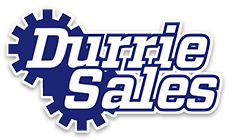Partnering with an independent manufacturers’ sales rep can carry a lot of benefits: A broader territorial reach, easier entry into key distributor accounts, and less time having to manage sales reps, to name a few.
But you may still be wondering, “How will we get enough share of their time and attention to make this work for us?”
As it turns out, there are three things you can do to tee up a successful – and highly profitable – relationship with your independent sales rep firm.
1. Encourage Communication
Partnerships are two-way relationships. One way to get more of your rep’s focus is to make them a vital part of your organization.
This is especially important if some of your accounts remain in-house while others are given to an industrial manufacturers’ representative (IMR) firm to handle. If you operate with this hybrid sales model, there are plenty of opportunities for miscommunication, lack of communication, and poor collaboration among you, your internal salespeople, and your external independent sales reps.
For example, some manufacturers don’t have a system in place to let their independent reps know about quotes that have been sent out – and then wonder why the rep isn’t following up.
While partnering with an IMR firm takes a lot off your plate, it isn’t entirely a “set it and forget it” scenario – the reps need accurate and timely communication from you if they’re going to have the greatest success at reaching your goals.
Open communication also includes training from you on your products, quarterly sales meetings, and timely information about delivery dates, competitive pricing, and plenty more. This open communication builds trust and creates highly successful partnerships.
2. Boost Access to Information
Straight talk: Independent sales reps won’t be able to sell your line if they don’t have enough information to convey its value to distributors.
More straight talk: Distributors carry hundreds of different product lines, and they’re not going to look through every catalog when they need a specific drill.
Distributors and independent sales reps that want to market your products online need electronic access to your product information, including detailed product specifications and attribute data by SKU.
So, if you haven’t already hopped on the digital transformation train, a great start would be a product information management (PIM) system that is integrated with the enterprise resource planning (ERP) software.
Digital access to product data, product and customer sales history, complementary products – it all adds up to your product information being at your reps’ fingertips and top of mind … instead of stuffed in a briefcase or filing cabinet.
3. Be Flexible
The third and final thing you can do as a manufacturer to get more value from your relationship with an independent sales rep is to be flexible.
A cookie-cutter approach doesn’t work anymore in today’s rapidly changing industrial sales landscape. The way they do business is different in Los Angeles than it is in New York. And it’s different in Chicago, too. Are you OK with that?
For example, as a manufacturer, do you pay sales commissions based on distributor invoice location or on ship-to location? This distinction matters to your independent sales reps who want to get paid for all sales that they generate through a particular distributor in a particular city. If the distributor is in Miami, Miami needs to be on the invoice so that your independent sales rep in Miami gets the commission for the sale they made in Miami with that distributor, regardless of where the product shipped to.
You also need to be flexible about how you go to market.
What type of distributors do you want your independent sales reps to call on, for example? This may vary by product line and by which sales channels work best for a particular region. The go-to-market plan will often be different for each distributor. With some distributors, decisions are made on the ground. At other times, they’re made at the head office.
Whether you’re going after a national distributor, a regional distributor or a local distributor, you need to have the flexibility to adjust your approach.
Set Your Independent Sales Rep Relationship Up for Success
Getting the most time and attention possible from your independent sales rep starts with open and frequent communication. It grows when you give them access to the information they need to make them (and you) successful, and it endures when you are flexible about invoicing, commissions, go-to-market strategies and the multiple other challenges of daily business that can either make or break a healthy partnership.
If you’d like to see what a healthy partnership looks like between a manufacturer and their independent sales rep, read our Monster Tool case study.


